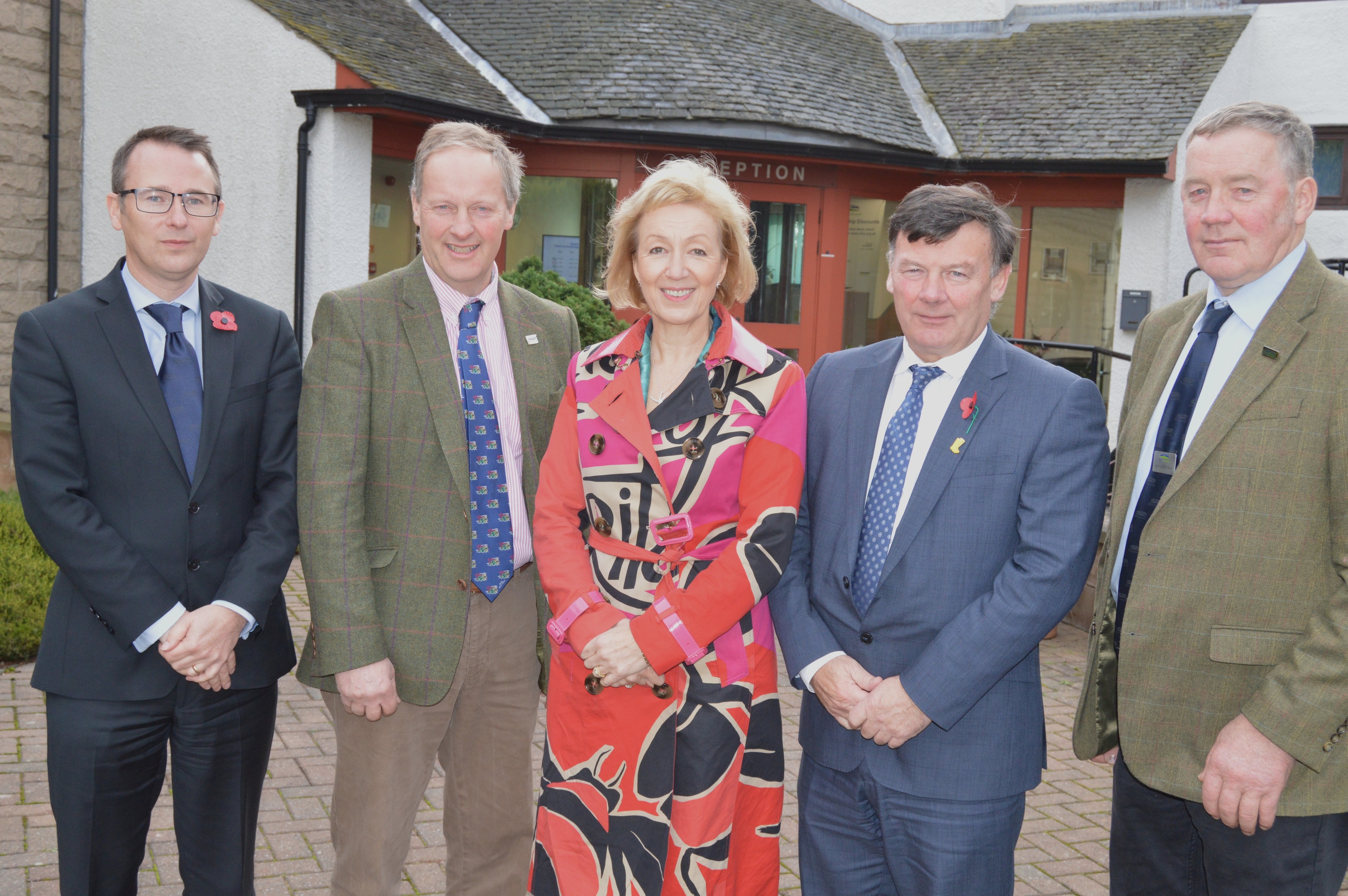A robust trade deal with the EU and other trading partners was at the core of NFU Scotland’s post-Brexit demands when leaders met Environment Secretary Andrea Leadsom in Edinburgh.
It was Mrs Leadsom’s first visit to Scotland as Secretary of State and the union wasted no time in pressing for trading costs, customs controls, barriers and tariffs to be mitigated in any new trading arrangements when Brexit finally kicks in.
They also outlined the importance of engaging with all parts of the UK and all sectors of the food and farming industries as the UK Government formulates its position ahead of exiting from the EU. And they sought reassurances that Scottish provenance, quality and high production standards would be protected in future.
Union office bearers later described Mrs Leadsom as “someone we can do business with” and said further face-to-face discussions were planned.
NFUS president Allan Bowie said Mrs Leadson was clearly aware of the unique challenges the industry would face in the next few years and said he was encouraged by her willingness to engage.
“That engagement is crucial. In Scotland, agricultural production is just the start of a supply chain which underpins a successful food and drinks sector, which has grown into the biggest manufacturing industry that we have,” he said.
“Farming and crofting in Scotland not only produces the vital raw materials necessary for our food and drink manufacturers, but does so in a manner that works with nature, delivering huge environmental and biodiversity benefits.”
Mr Bowie stressed that the farming sector underpinned the whole rural economy and maintained fragile communities in Scotland’s most marginal areas.
He added: “There are opportunities ahead for our industry that can be realised if we secure the right trading arrangements with Europe; prioritise the countries for which we want to secure new trade deals; ensure we continue to have access to employees to meet our labour needs and have a domestic agricultural policy that prioritises production.”
Mrs Leadsom made no comment on her meeting with the union but after a visit to a Glenmorangie bottling plant, she said the Scotch whisky industry was a powerful example of the global opportunities available for food and drink businesses.
“It accounts for nearly one-quarter of all our food and drink exports each year – a true powerhouse of our food and farming industry which generates over £100 billion a year and employs one in eight people,” she said.
“International trade is at the heart of our economy and our food and drink industry has a crucial role to play. That is why we have launched our ambitious plan to boost our exports by £3 billion over the next five years.”
